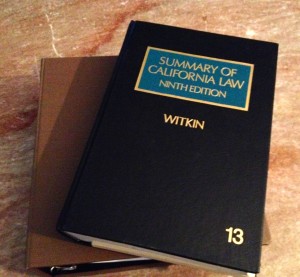Conspiracy, Illegal Interference, and other Claims Against Lawyers
In addition to malpractice (professional negligence), breach of fiduciary duty, and other intentional torts, attorneys may be held liable (and sued) for a variety of legally wrongful actions which damage current or former clients (and, occasionally, third parties). Let’s take a look at a few of these:
CIVIL CONSPIRACY (WITH A CLIENT)
Lawyers may not conspire with clients illegally in connection with a claim, dispute or legal issue. However, not all conduct rises to the level of actionable “conspiracy.” A legal action for conspiracy contains several detailed elements, and claims must be evaluated carefully.
The requirements for conspiracy claims against lawyers include obtaining a court order permitting the filing. A California statute (California Civil Code Section 1714.10) requires potential plaintiffs to obtain “an order allowing the pleading [for conspiracy causes of action]…after the court determines that the [plaintiff] has established … a reasonable probability that the [plaintiff] will prevail in the action.”
However, the court order is not required where the conspiracy claim is based upon: (a) the lawyer’s breach of a legal duty to the plaintiff (aka, legal malpractice) or (b) conspiracies that go beyond the professional duty, such as conspiracies where the lawyer violates a legal duty in order to obtain a personal financial advantage or gain.
Conspiracy claims are technical in nature and governed by significant legal rules. Always obtain immediate legal advice from an experienced litigator if you think you have a conspiracy claim — or any other claim — against an attorney.
INTERFERENCE WITH PROSPECTIVE ECONOMIC ADVANTAGE
When a lawyer engages in conduct intended to wrongfully interfere with, prevent, or damage another person’s actual or prospective economic advantage (or opportunities), the injured party may have a claim for “interference with prospective economic advantage.” As with conspiracy, not all conduct which actually interferes with a person’s business or financial opportunities gives rise to a claim. The actions and damages must meet the elements of this cause of action, which requires a case-by-case legal analysis of the attorney’s conduct and the surrounding circumstances.
However, if you believe that a lawyer has intentionally and wrongfully interfered with your business or financial opportunities, or damaged your business through willful (or grossly negligent) wrongful conduct, you should consult an experienced litigator without delay. Statutes of limitation apply to this claim, as to all others, and you may damage or lose your rights if you do not act promptly.
***
Disclaimer: Legal claims against lawyers (and non-lawyer defendants) are a complicated topic. Articles like this touch only on basic issues. The details of a legal claim for fraud are individualized, highly fact-specific, and complicated. THIS ARTICLE IS FOR INFORMATIONAL PURPOSES ONLY, AND DOES NOT CONSTITUTE LEGAL ADVICE. Your rights and experiences may vary.
Never use an article (or any online source) to evaluate your legal claims. Always speak with an experienced lawyer promptly to obtain a personalized evaluation of your claims, possible damages, and options. You may lose or compromise your rights if you delay in consulting legal counsel.















